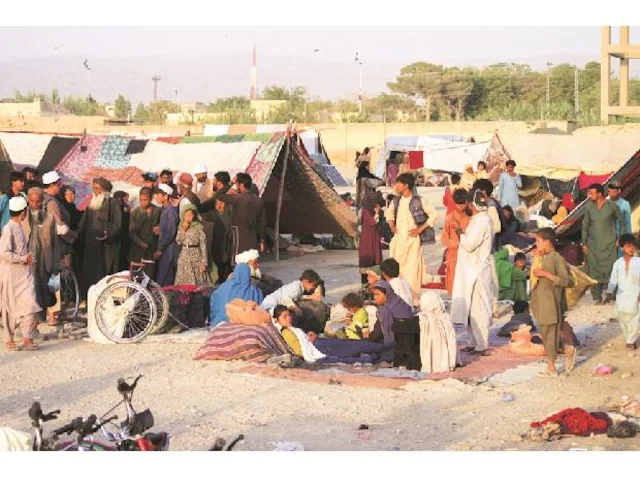Aid delivery to the Afghan people has not been very efficient under the Taliban regime as the projects to improve health and education are in shambles.
As per the latest report published (April 2022) by the Europe Asia Foundation (EAF) titled “Can ‘Softly-Softly’ address the Afghan crisis?”, the aid given by the world is not distributed efficiently by the Taliban, moreover, war-torn Afghanistan is facing a dearth of funds after sanctions were imposed by donor nations after the Taliban took control of the Country.
The report informs that international humanitarian aid to the tune of USD 1.88 billion pledged since mid-2021 has not been distributed efficiently and more than half of all Afghans go hungry. Similarly, the World Food Programme (WFP) is finding it difficult to find donors to fund its USD 4.4 billion plans, according to a think tank, Policy Research Group (POREG).
This raises the moot question: if the intention of the international community is to use aid and assistance as leverage to obtain the Taliban’s good behaviour, has the move succeeded? The answer is a resounding no based on factors like the closure of girls’ schools and the ban on girls/women from attending schools and colleges.
This March the Taliban cited a technical hitch to indefinitely postpone the reopening of girls’ secondary schools. Today Afghan women are completely out of the education system and the World Bank has suspended a USD 600 million investment in Afghan schools!
To the international community, this is a no-no as it goes against Sustainable Development Goals (SDG) relating to quality education for all and gender equality, reported POREG.
The lack of inclusivity with regard to women is just one aspect of the social malaise in Afghanistan. There are ethnic divisions – divisions within the Pashtuns and within the Taliban also. This has led to a lack of cohesive decision-making on issues like women’s education claims the EAF report.
Moreover, the European Parliament has been helping Afghan women to maintain a high media profile, hosting a series of topical events featuring women who have formerly held important positions in Afghan society. But that is neither here nor there. More so as the evidence on the ground suggests that no amount of Western pressure is likely to get the Taliban, with its Pakistan backers, to relent on social or economic reform that would help the Afghan people.
This has led to an international reticence to engage with Afghanistan. Only 13 countries today maintain their Embassies in Kabul, with the EU being the only grouping to have a presence amongst non-Asian countries. Mere presence in Afghanistan is insufficient to surmount the scale of humanitarian tragedy that is unfolding, reported POREG.
Notably, today all foreign aid to Afghanistan stands halted, except for the assistance that is being given to international aid agencies and NGOs to directly help the Afghan people. The sudden stopping of aid caused a severe liquidity crisis and imports of urgently needed food and medicines could not be funded.

